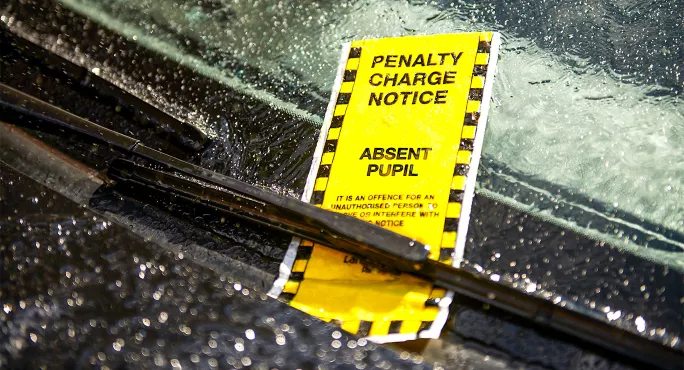Pupil absence: new regulations on fines

Amid the excitement of exam results and preparation for the start of the new term, you may have missed new regulations on school attendance.
The Department for Education’s new rules and accompanying statutory guidance came into force on 19 August, detailing when fixed penalty notices can be issued and how they should be enforced.
The new guidance applies to schools and, under a new national framework, also local authorities. Here’s what you need to know.
When can schools issue fines?
Fines can be issued to parents or those with parental responsibilities who fail to ensure their child’s regular attendance at school. This includes unauthorised absence during term time, exams or assessments, and persistent lateness.
This has been a contentious issue in recent years, with some parents arguing for the right to take their child out of school - but there is a clear expectation that fines should be issued for term-time holidays.
Fines must be issued in accordance with the terms of the respective local authority’s code of conduct, with schools and local authorities expected to work together to determine the most appropriate course of action in each case.
Schools must be able to record attendance and absence data electronically, analyse data to monitor trends, and share findings with the relevant bodies in order to fulfil their obligations.
Children who have long-term medical conditions or severe mental health issues, as well as those with special educational needs and disabilities (SEND), may encounter extra obstacles in relation to attendance. For these pupils, a “support-first” approach is expected, with fines regarded as a last-resort measure.
What are the thresholds for parent fines?
All schools are required to consider a fine when a child has had unauthorised absence for 10 or more morning or afternoon sessions - the equivalent of five days - in a 10-week period.
These sessions can be consecutive or not. For example, a pupil may have been absent for a full week while on holiday in term time, or could have been unauthorised for five sessions in one week - such as persistent lateness after registration - and one unauthorised session per week for the next five weeks.
The 10-week period can span different terms or school years. It is up to the school’s senior attendance champion to identify trends and concerns.
Schools are required to take a range of interventions to improve attendance before resorting to fines, unless such interventions are inappropriate, such as in the case of a term-time holiday.
These may include meetings with parents or carers to discuss the importance of attendance, support to help them improve, the use of incentives to encourage good attendance and sanctions such as detention to discourage poor attendance and persistent lateness.
- Absence still high despite drive to boost attendance
- Our trust attendance hub is helping us to cut absence
- Punitive measures to cut absence ‘no longer work’
How are parents charged fines?
The government has increased the value of fines for the first time since 2012. The first fine issued to a parent or carer is charged at £160 (up from £120) if paid within 28 days. The fine is reduced to £80 if paid within 21 days.
A penalty notice for a second event of absence issued to the same parent in respect of the same pupil is charged at a flat rate of £160 if paid within 28 days.
Parents who receive a fixed penalty notice will have 28 days to pay the fine to the local authority, which must decide to prosecute or withdraw the notice after this period. There is no right of appeal against the fine and funds must be recycled into the local attendance support framework.
Fines are capped to two within any three-year period. Once this limit has been reached, further action, such as a parenting order or prosecution, will be considered.
Parents who live together will receive the fine together. For separated parents, schools will have to determine which parent is responsible for the absence (for example, according to where the pupil usually lives).
For these parents, each can be issued with a notice in respect to the same child twice in a three-year rolling period.
Attendance support
Given the links between attendance and attainment, schools are required to provide support to parents who are experiencing difficulties with their child’s attendance. They may be able to offer practical solutions such as mentoring and counselling.
Schools will need to work closely with their local authority’s school attendance support team to participate in targeted support meetings and request multi-disciplinary support for families.
Ensuring a published attendance policy is up to date and clear on the changes will help all stakeholders to understand the new steps of escalation.
Laura Murphy is an associate in the education team at Browne Jacobson
For the latest education news and analysis delivered every weekday morning, sign up for the Tes Daily newsletter
You need a Tes subscription to read this article
Subscribe now to read this article and get other subscriber-only content:
- Unlimited access to all Tes magazine content
- Exclusive subscriber-only stories
- Award-winning email newsletters
Already a subscriber? Log in
You need a subscription to read this article
Subscribe now to read this article and get other subscriber-only content, including:
- Unlimited access to all Tes magazine content
- Exclusive subscriber-only stories
- Award-winning email newsletters
topics in this article



